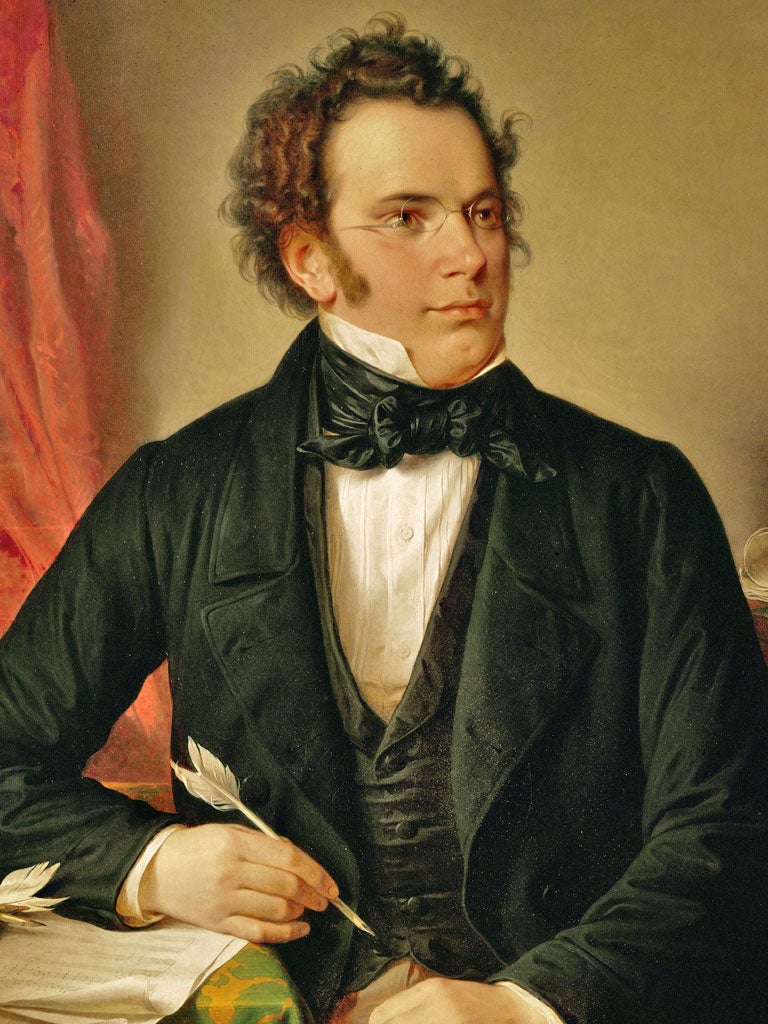The Week In Radio: Schubert shows it's easy to become hooked on classics

Your support helps us to tell the story
From reproductive rights to climate change to Big Tech, The Independent is on the ground when the story is developing. Whether it's investigating the financials of Elon Musk's pro-Trump PAC or producing our latest documentary, 'The A Word', which shines a light on the American women fighting for reproductive rights, we know how important it is to parse out the facts from the messaging.
At such a critical moment in US history, we need reporters on the ground. Your donation allows us to keep sending journalists to speak to both sides of the story.
The Independent is trusted by Americans across the entire political spectrum. And unlike many other quality news outlets, we choose not to lock Americans out of our reporting and analysis with paywalls. We believe quality journalism should be available to everyone, paid for by those who can afford it.
Your support makes all the difference.So, Schubert. He's inescapable, or at least he is on Radio 3. If you're not an admirer but a regular listener, you'll either have to decamp to Classic FM or seek refuge in silence which is, of course, unthinkable. I can't claim to be an authority on the composer since my knowledge of classical music can pretty much be summed up in Music for Babies, a CD that someone who didn't know me too well gave me when I was pregnant after it was claimed that exposure to classical music would increase my child's IQ. (To what extent it succeeded isn't clear). Pretty much all I know about Schubert is that he's the greatest songwriter since The Beatles. Hang on, that doesn't sound right....
Clearly, I'm in need of an education, so Schubert week, which is still going on and is actually not a week but eight whole days (200 hours!) of the composer, was going to put me straight. This is Radio 3's latest survey on a major composer, following on from wall-to-wall seasons on Mozart, Tchaikovsky, Beethoven and Bach. Such a completist approach has its drawbacks, not least that it stands to alienate the swathe of listeners who tune in to the station purely for its jazz or drama strands. It also chimes with the bigger! longer! better! philosophy that afflicts so much contemporary culture.
On the other hand, such encyclopaedic programming taps rather nicely into the obsessiveness that can come with an admiration of a particular composer or musician. If they can do a week of Schubert on Radio 3 then, hell, why not a week of Leonard Cohen on BB6 Music, or round-the-clock Rolling Stones on Radio 2?
But anyway, Schubert. One of the first things I learnt was that eight days isn't even close to enough time to play everything he ever wrote, so prodigiously productive was he as a composer. On comprehending just how much he churned out – in 1815 alone he wrote 22,000 bars of music – the eight-day marathon started to look a little less ludicrous. Tom Service's Schubert Lab was particularly good, a forensic dissection of the composer that punctured the overwhelmingly reverent spirit elsewhere with its imagining of the teenage Schubert's diary, courtesy of author John Crace ("January: started the year with a really bad hangover so only managed to write 20 songs").
While the lieder didn't seem to agree with me, elsewhere I found myself moved to tears by Schubert's C Minor Sonata D959 during The Spirit of Schubert, which concentrated on his final sonatas. They were, said Alfred Brendel, "a veritable dance with death". Whether these really were the last testament of a dying man – Schubert expired weeks after composing them in 1828 – or just a response to the gauntlet thrown down by Beethoven in his final piano sonatas was a matter of debate.
Having reached my limit of Schubert – which was in itself progress, as until this week I didn't have one – it was a strange contrariness that led me to Archive on 4's documentary More Than Just Whale Music. Rather than a programme solely on whale speak, it looked at the broader commodification of the sounds of nature, from birdsong to rolling thunder to rushing waterfalls. As one man explained how his company had begun using birdsong to replace the music heard by customers when they were put on hold, I thought of all the acts of violence that might now be committed against poor innocent blue tits. And then I switched off and went back to Schubert.
Join our commenting forum
Join thought-provoking conversations, follow other Independent readers and see their replies
Comments